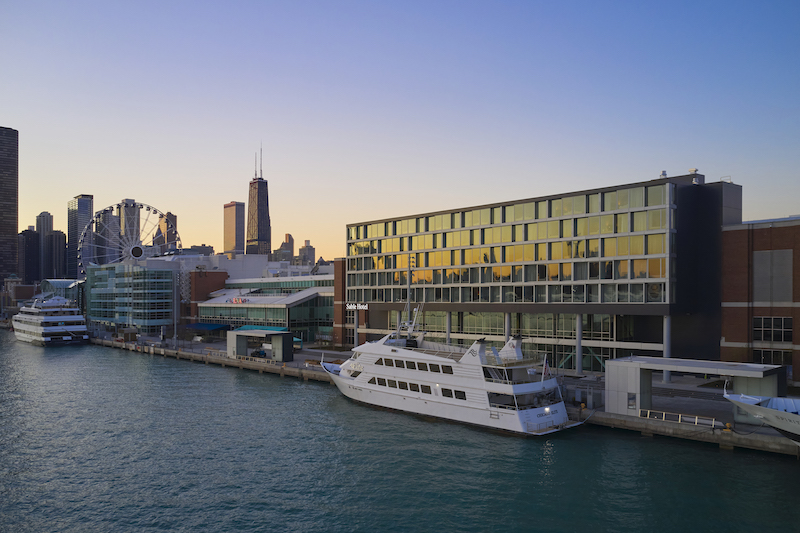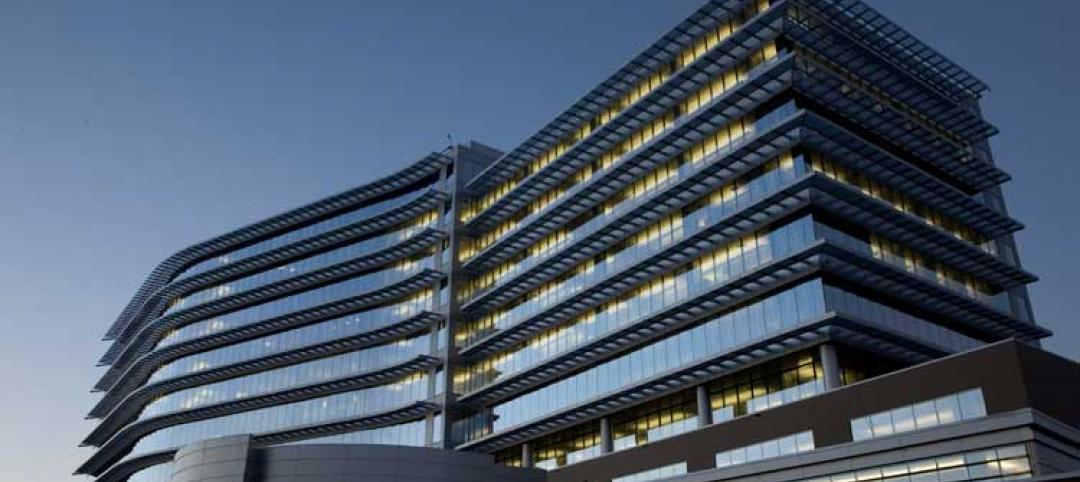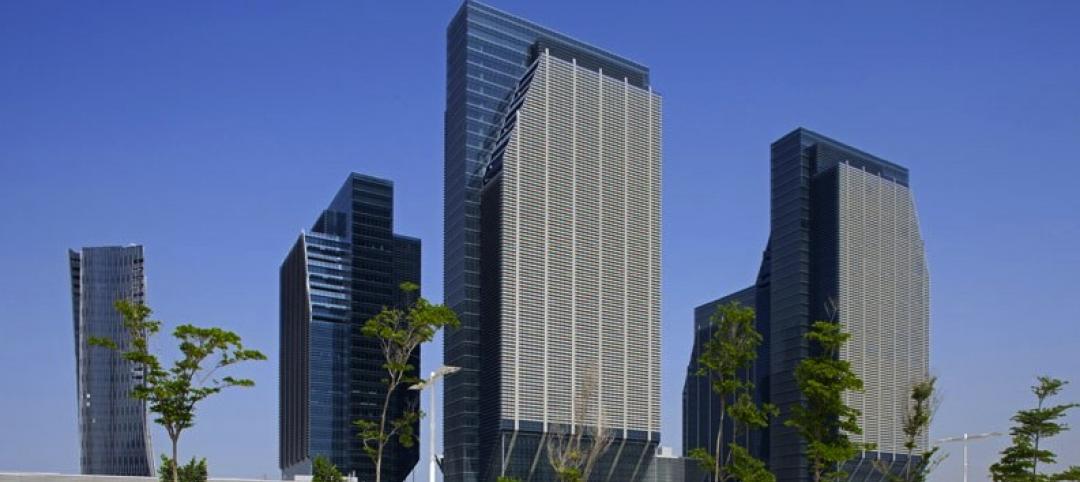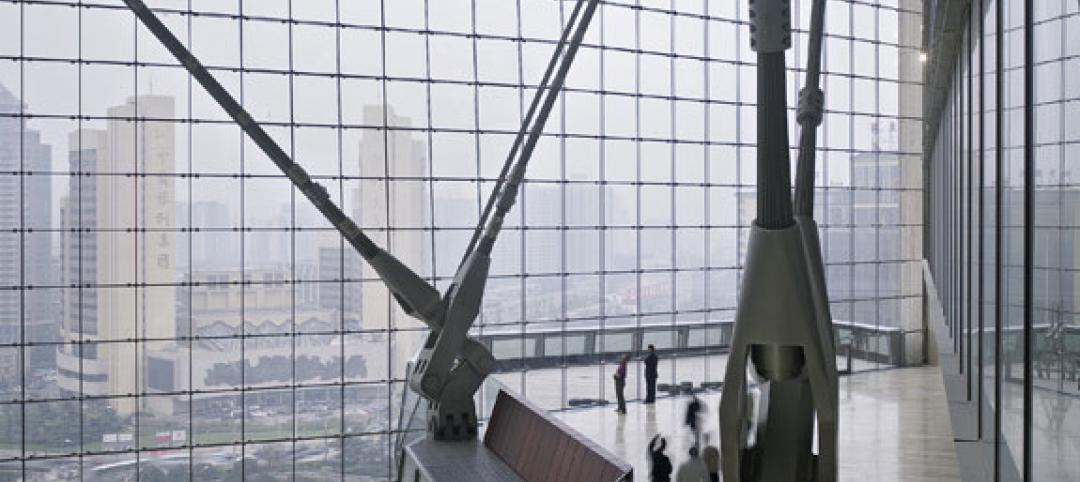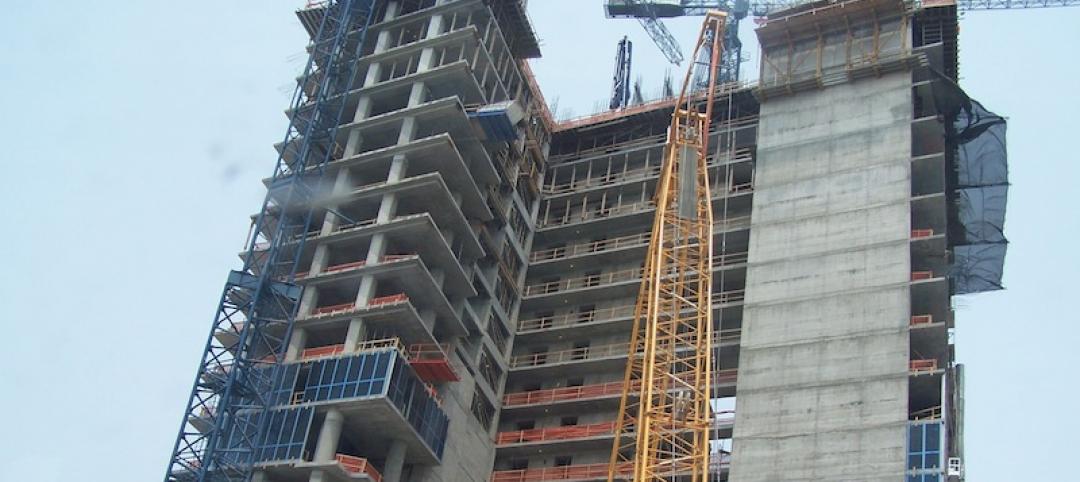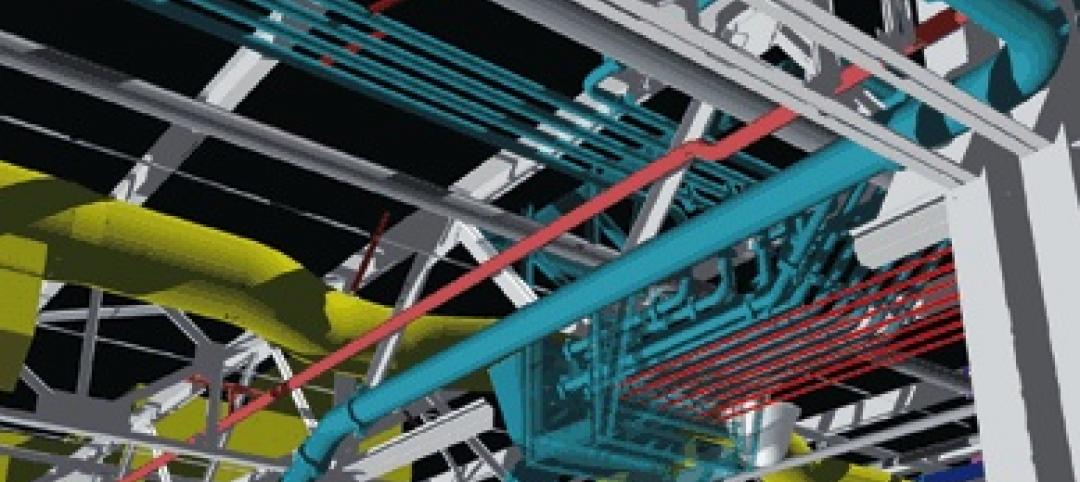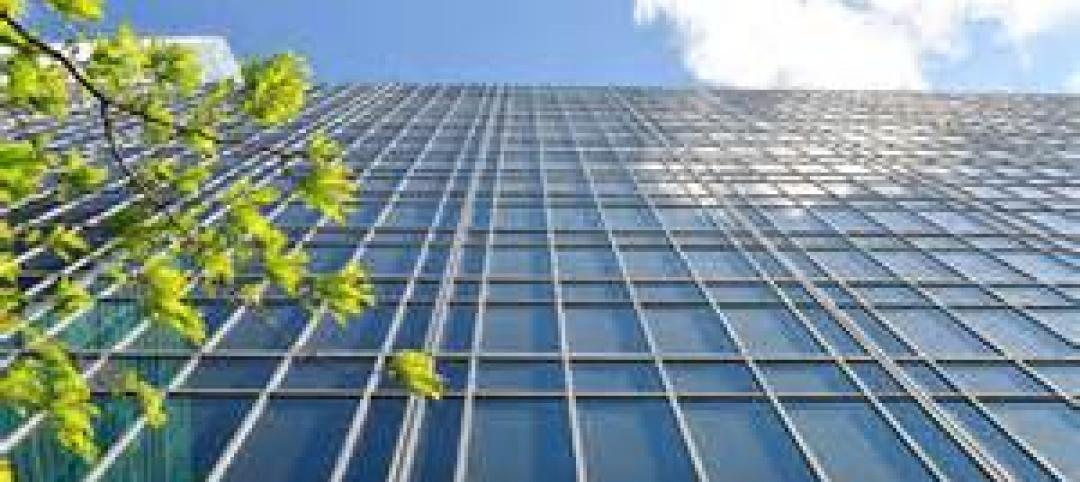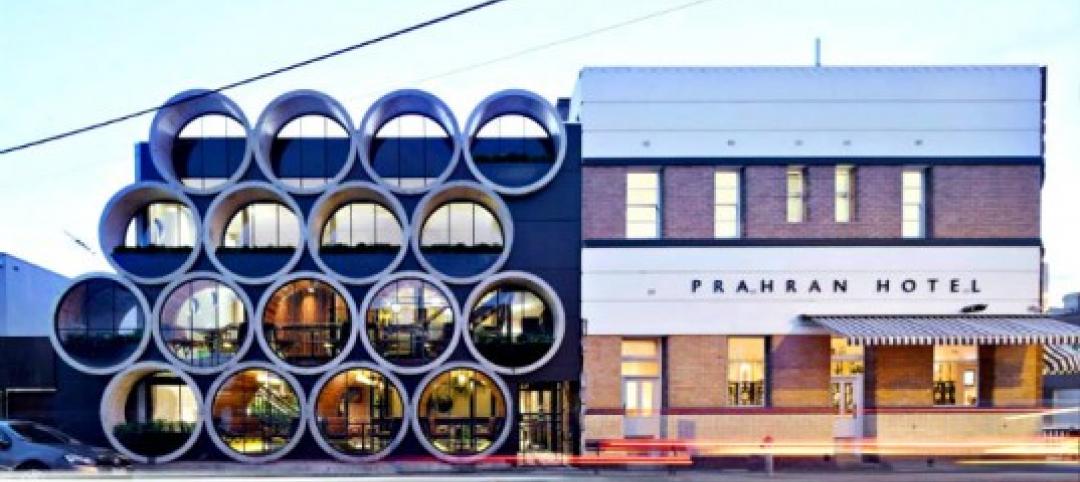Navy Pier’s first hotel, Sable at Navy Pier, opened this week in Chicago. The KOO-designed project links the lake with the city that acts as its backdrop.
KOO started with a window box as the organizing principle for the design of the facade and guest rooms. Each of the 223 guest rooms features a window seat with views of Chicago’s skyline and Lake Michigan. The angled surface of each room’s window seat creates a textured exterior that reflects the range of light, shadow, and color of the lake.
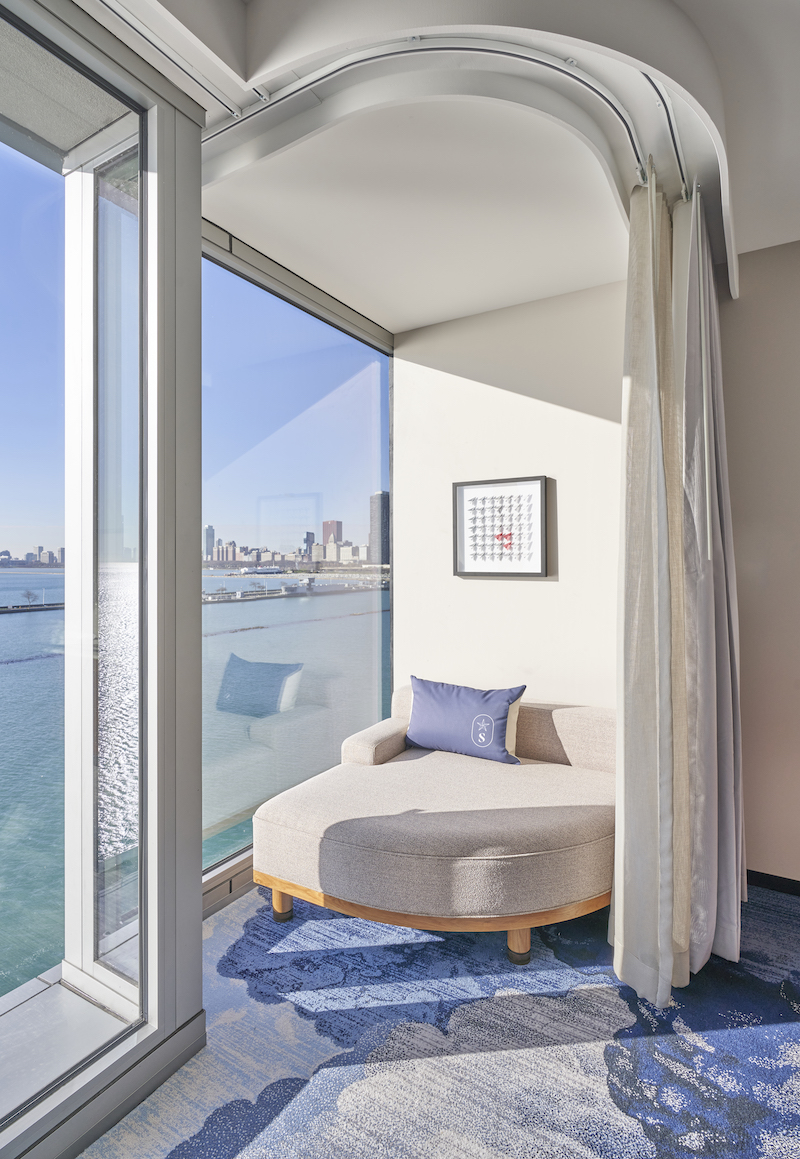
The interior design, also done by KOO, pulls inspiration from Navy Pier’s history as a port and the eponymous USS Sable by incorporating subtle nautical cues like weathered brass, ship building materials, and the use of smooth curves similar to those of a ship’s interior cabin. The color palette is grounded by mixed neutrals and highlighted by a spectrum of blues and blue-greens reminiscent of the colors of Lake Michigan.
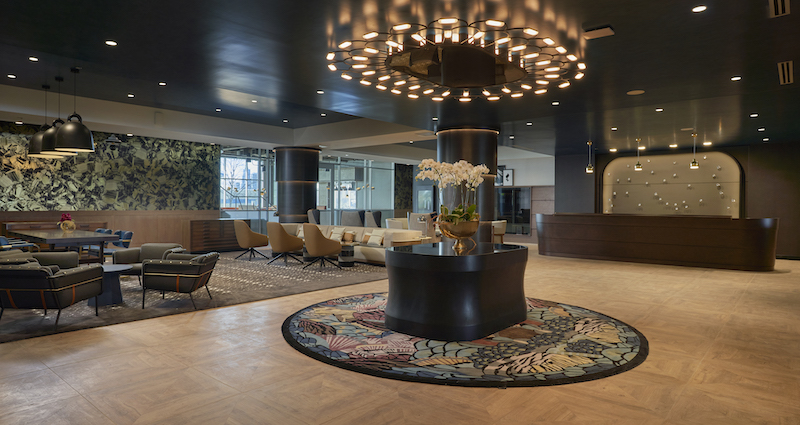
The design of Sable at Navy Pier also preserves Navy Pier’s structure. A unique structural engineering approach was introduced to protect the pier. The design uses micropiles that thread through the existing pier foundations and lake water to bedrock below. The micropyles support new columns and a new structural slab that creates a platform to carry the hotel floors. The columns create an arcade that supports the hotel rooms above the Sable at Navy Pier’s lobby and newly created retail space.
In addition to KOO as the architect, James McHugh Construction Co. was the project’s general contractor. Sable at Navy Pier is targeting LEED Silver certification.
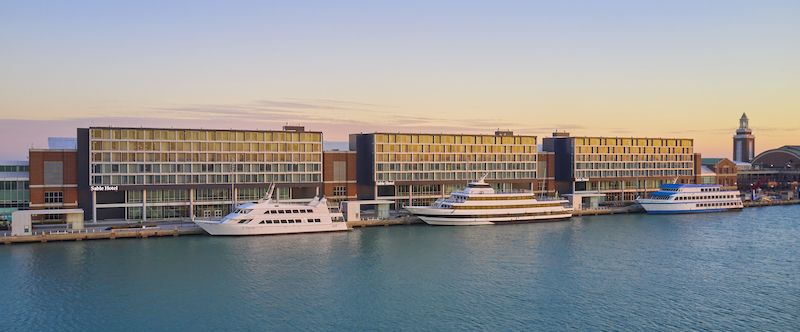
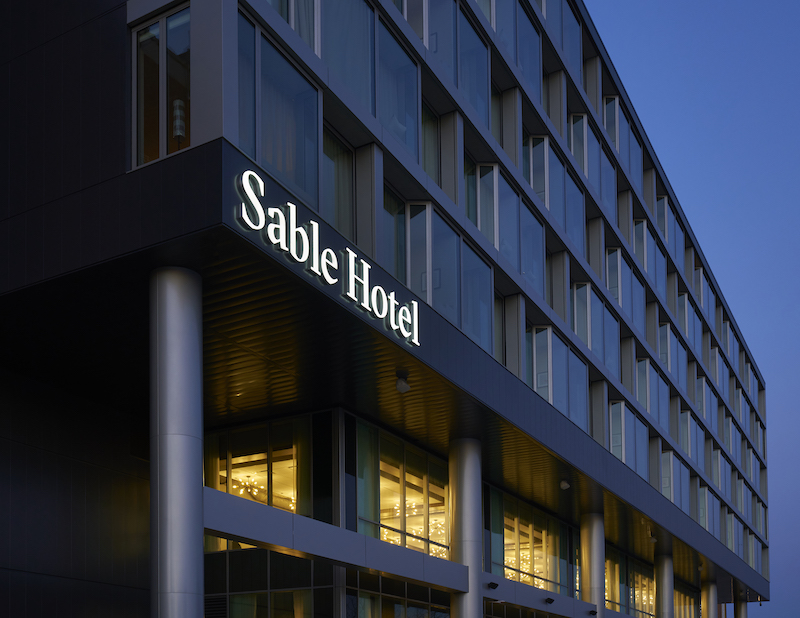
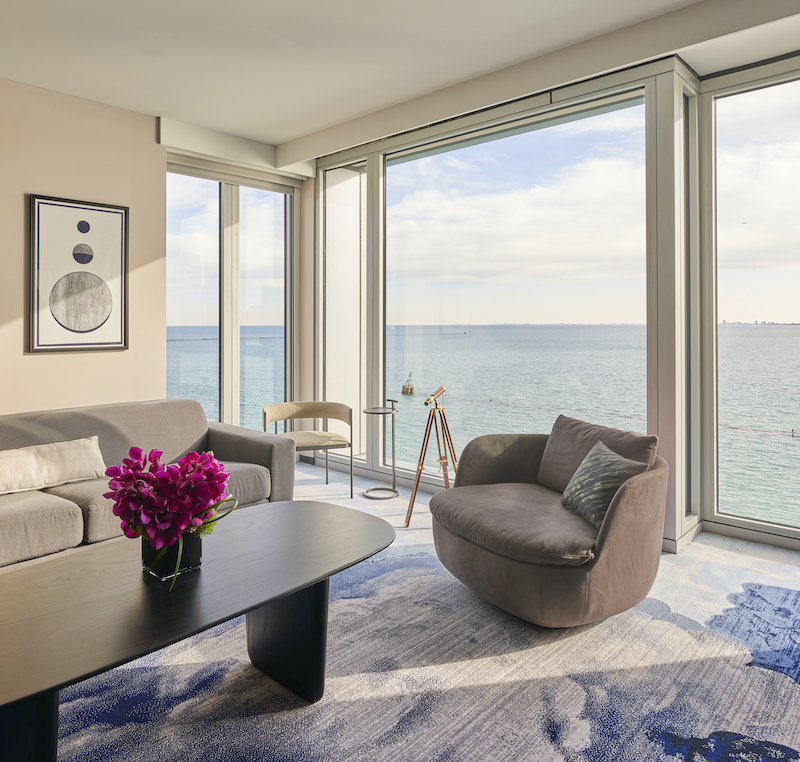
Related Stories
| Jul 17, 2013
CBRE recognizes nation's best green research projects
A rating system for comparative tenant energy use and a detailed evaluation of Energy Star energy management strategies are among the green research projects to be honored by commercial real estate giant CBRE Group.
| Jul 10, 2013
World's best new skyscrapers [slideshow]
The Bow in Calgary and CCTV Headquarters in Beijing are among the world's best new high-rise projects, according to the Council on Tall Buildings and Urban Habitat.
| Jul 10, 2013
TED talk: Architect Michael Green on why we should build tomorrow's skyscrapers out of wood
In a newly posted TED talk, wood skyscraper expert Michael Green makes the case for building the next-generation of mid- and high-rise buildings out of wood.
High-rise Construction | Jul 9, 2013
5 innovations in high-rise building design
KONE's carbon-fiber hoisting technology and the Broad Group's prefab construction process are among the breakthroughs named 2013 Innovation Award winners by the Council on Tall Buildings and Urban Habitat.
| Jul 3, 2013
Mall of America will double in size after $2.5 billion expansion
The nation's largest indoor mall will undergo a $2.5 billion, 10-year expansion project that will add attractions like an NHL-sized skating rink and an indoor water park.
| Jul 2, 2013
LEED v4 gets green light, will launch this fall
The U.S. Green Building Council membership has voted to adopt LEED v4, the next update to the world’s premier green building rating system.
| Jul 1, 2013
Report: Global construction market to reach $15 trillion by 2025
A new report released today forecasts the volume of construction output will grow by more than 70% to $15 trillion worldwide by 2025.
| Jun 28, 2013
Building owners cite BIM/VDC as 'most exciting trend' in facilities management, says Mortenson report
A recent survey of more than 60 building owners and facility management professionals by Mortenson Construction shows that BIM/VDC is top of mind among owner professionals.
| Jun 17, 2013
DOE launches database on energy performance of 60,000 buildings
The Energy Department today launched a new Buildings Performance Database, the largest free, publicly available database of residential and commercial building energy performance information.
| Jun 7, 2013
Must see: Building façade made of massive concrete drain pipes
Looking to create a unique atmosphere using natural materials for the Prahran Hotel pub near Melbourne, local architect Techné Architects cleverly incorporated a series of concrete sewer pipes into the building's main façade.


